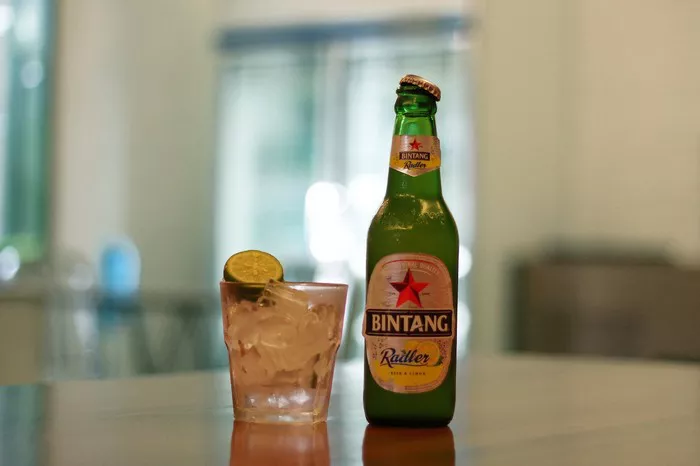In the realm of beverages, few topics stir up as much debate and confusion as the consumption of non-alcoholic beer by individuals under the legal drinking age. With concerns about underage drinking prevalent in society, it’s natural to wonder about the appropriateness and legality of consuming non-alcoholic beer for those under 21. This article aims to delve into this complex issue, addressing misconceptions, exploring regulations, and providing clarity on whether someone under 21 can indeed drink non-alcoholic beer.
Understanding Non-Alcoholic Beer: What Is It Exactly?
Before delving into the question at hand, it’s crucial to understand what non-alcoholic beer is and how it differs from its alcoholic counterpart. Non-alcoholic beer, often abbreviated as NA beer, is a beverage that has undergone a process to remove most, if not all, of its alcohol content. While the specifics of this process can vary, it typically involves techniques such as vacuum distillation, reverse osmosis, or simply brewing the beer to minimize alcohol production.
Contrary to popular belief, non-alcoholic beer isn’t entirely devoid of alcohol. In most regions, including the United States, non-alcoholic beer is permitted to contain a minimal amount of alcohol, usually less than 0.5% alcohol by volume (ABV). This minute alcohol content is a natural byproduct of the brewing process and is comparable to the trace amounts found in ripe fruits or certain types of bread.
Navigating Legal Regulations: The 21-and-Over Conundrum
The legality of consuming non-alcoholic beer for individuals under the age of 21 hinges on regional laws and regulations governing alcohol consumption. In many countries, the legal drinking age is set at 21, including the United States. Consequently, the question arises: can someone under 21 drink non-alcoholic beer without violating the law?
In the United States, the legal landscape regarding non-alcoholic beer consumption by minors can be somewhat convoluted. While federal regulations permit the sale and consumption of non-alcoholic beer to individuals under 21, state laws may impose additional restrictions or prohibitions. Some states explicitly allow minors to purchase and consume non-alcoholic beer, while others may have stricter regulations or outright bans.
It’s essential for individuals and retailers to familiarize themselves with the specific laws in their jurisdiction to ensure compliance. In states where the sale or consumption of non-alcoholic beer by minors is prohibited, violators may face legal consequences, including fines or other penalties. As such, it’s crucial to exercise caution and adhere to applicable laws and regulations.
Dispelling Misconceptions: Addressing Common Concerns
Despite the legality of consuming non-alcoholic beer for individuals under 21 in many jurisdictions, misconceptions and concerns persist regarding its appropriateness and potential implications. One common misconception is that drinking non-alcoholic beer may serve as a gateway to alcohol consumption among minors.
However, research suggests that the vast majority of individuals who consume non-alcoholic beer do so for reasons unrelated to alcohol consumption. For many, non-alcoholic beer offers an alternative beverage option that mimics the taste and experience of traditional beer without the intoxicating effects. Additionally, some individuals may choose non-alcoholic beer for health reasons, such as pregnancy, designated driving, or simply reducing alcohol intake.
Furthermore, studies indicate that exposure to non-alcoholic beer does not significantly influence attitudes or behaviors related to alcohol consumption among minors. In fact, some research suggests that early exposure to non-alcoholic beer in a controlled environment may actually demystify alcohol and promote responsible drinking habits later in life.
Educational Initiatives and Responsible Consumption
In light of the misconceptions surrounding non-alcoholic beer and underage drinking, educational initiatives play a crucial role in promoting responsible consumption and fostering informed decision-making among minors. By providing accurate information about non-alcoholic beer, its alcohol content, and the legal framework governing its consumption, educational programs can empower young individuals to make responsible choices regarding beverage consumption.
Moreover, promoting dialogue and open communication between parents, educators, and young individuals can help address concerns and dispel myths surrounding non-alcoholic beer. By fostering a supportive environment that encourages honest discussions about alcohol and its alternatives, stakeholders can equip minors with the knowledge and skills necessary to make responsible choices regarding beverage consumption.
The Role of Parents and Guardians
While regulations and educational initiatives play a significant role in shaping attitudes and behaviors surrounding non-alcoholic beer consumption among minors, the influence of parents and guardians cannot be overstated. Parents have a unique opportunity to serve as role models and mentors, guiding their children’s attitudes and behaviors towards alcohol and non-alcoholic alternatives.
By modeling responsible drinking habits and fostering open communication about alcohol and its alternatives, parents can help instill a sense of responsibility and moderation in their children. Encouraging healthy decision-making and emphasizing the importance of personal choice and accountability can empower young individuals to make informed decisions regarding beverage consumption.
Conclusion: Navigating Non-Alcoholic Beer Consumption for Minors
In conclusion, the question of whether someone under 21 can drink non-alcoholic beer is multifaceted, with considerations ranging from legal regulations to societal perceptions and individual choices. While federal regulations in many countries permit the sale and consumption of non-alcoholic beer by minors, state and local laws may impose additional restrictions or prohibitions.
Despite misconceptions and concerns surrounding non-alcoholic beer consumption among minors, research suggests that exposure to non-alcoholic beer does not significantly influence attitudes or behaviors related to alcohol consumption. Educational initiatives, responsible parenting, and open communication play pivotal roles in promoting informed decision-making and fostering responsible consumption habits among young individuals.
Ultimately, whether someone under 21 should drink non-alcoholic beer is a personal decision influenced by a variety of factors, including cultural norms, individual beliefs, and legal considerations. By promoting dialogue, education, and responsible consumption practices, stakeholders can work together to empower minors to make informed choices regarding beverage consumption and cultivate a culture of moderation and responsibility.


